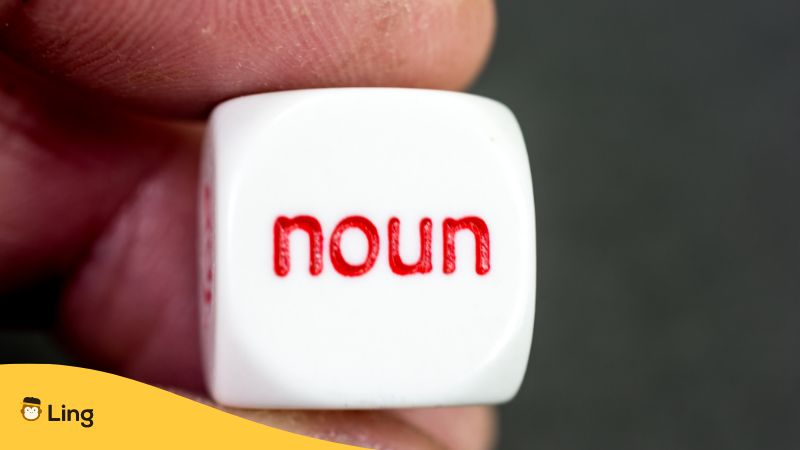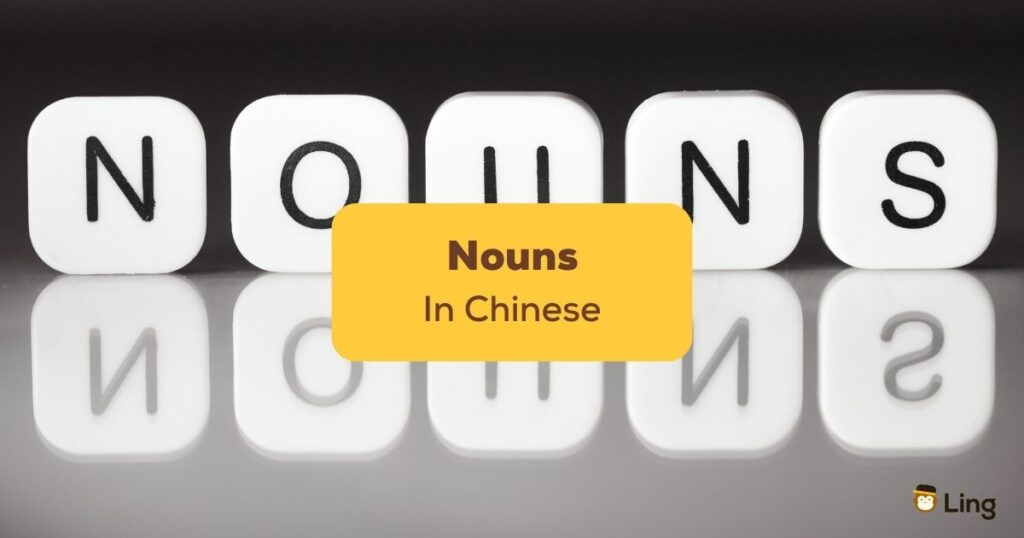Chinese nouns: They might seem daunting at first with all those tricky characters and unfamiliar sounds. Learning them is like unboxing a jigsaw puzzle where you’re not quite sure how the pieces fit together. But do those snaking dragons of complexities scare us? Not a bit!
Here’s some good news! Mastering Chinese nouns is a totally doable task! And I’m not just saying that to pep you up! With the right tools, a sprinkle of patience, and practice, you’ll slide through those tricksters in no time.
And it’s about to get a lot easier with this all-in-one guide made just for you. So brace yourselves, folks! We’re about to dive into an amazing adventure. The ride might be bumpy, with twists and turns, but the light at the end of the tunnel is only a few nouns away!
Basics Of Chinese Nouns
Honestly, Chinese nouns aren’t that different from English ones. Like English, Chinese nouns are the building blocks that name people, places, things, animals, or even abstract ideas. They play an important role, and having a grasp on them will bring more substance and fluidity to your Chinese conversations. Amazing isn’t it?
Exciting or daunting? A touch of both perhaps, but that’s what makes learning Chinese a unique and enthralling journey. Now let’s dive into the nuances that make Chinese nouns stand apart.
No Sweat Over Genders And Plurals
In English, we alter nouns to indicate numerical values (single or plural), and sometimes gender. “Cat” becomes “cats”, and “actor” becomes “actress”. But here’s the kicker in Chinese grammar – nouns have no gender, and they also stay the same regardless of whether they’re singular or plural. Interesting, isn’t it?
For example, whether you are talking about one book or many books, the word “书” (shū) remains constant. No plural forms to worry about.

Measure Words
A key to mastering Chinese nouns is understanding measure words. Unlike English, every noun in Chinese has a specific measure word, as well as a general measure word, “个.” When you need to quantify a noun, you’ll need to use a measure word. However, if you’re just talking generally about something, you don’t have to worry about using one.
Take for instance, the word ‘book’ (书 shū). Its measure word is ‘本 běn’ resulting in ‘一本书’ which translates to ‘one book’.
For Example: 我买了一本书 (Wǒ mǎile yī běn shū) – I bought a book.
Roles In Sentences
Chinese nouns function quite similarly to English nouns in a sentence. They can be subjects, objects, or complements, but never a result. You might also see them serving as adverbials occasionally. One thing to remember is that Chinese nouns are never results.
Here’s an example: Dog chases cat. (Gǒu zhuī māo – 狗追猫). Here, ‘dog’ (Gǒu) works as the subject and ‘cat’ (māo) being the object.
Negation (不)
Meet your new friend, 不 (bù)! This little gem is your ticket to saying “no” in Chinese. It’s like that handy tool in your grammar toolbox. It simply expresses negation, or in normal language “something that’s not.” Let’s try an example sentence:
I am a teacher. – 我是教师 (Wǒ shì jiàoshī.)
I am not a teacher. – 我不是教师 (Wǒ bú shì jiàoshī.)
Reduplication
In Chinese, when you repeat a noun, it doesn’t quite hit the mark. It’s a bit like wearing socks with sandals. You could do it, but it’s just not done in good style.
Reduplication is a big thing with Chinese verbs and adjectives. Doubling up can add emphasis or affection. However, doing the same with nouns is a different story. In fact, if you start doubling up nouns, you might get some puzzled looks or stifle some giggles.
Take ‘书’ (shū), which means ‘book’. Doubling it to ‘书书’ (shū shū) doesn’t stress that you REALLY love books or that it’s a particularly wonderful book. It just sounds goofy.
Time Nouns
Time nouns in Chinese are quirky and fascinating. They behave just like their English counterparts, representing a specific day, month, year, or even a particular point in the day. But there’s a bonus point – Chinese time nouns can also express more general time concepts in certain circumstances.
For instance, 去年 (qù nián) means “last year,” and 明天 (míng tīan) translates to “tomorrow.” The key is to pick the right phrase for the right context!
Nouns of Locality
Nailing down Chinese nouns of locality (位置名词) is just as essential. These are usually connected to prepositions to form localizer phrases, pinpointing exact location and direction. Words like 上 (shàng, meaning up), 下 (xià, meaning down), 里 (lǐ, meaning inside), and 外 (wài, meaning outside) are among the most common nouns of locality you’d use in everyday scenarios.
For example, ‘上面’ (shàngmiàn) meaning ‘above’ or ‘over’. ‘下面’ (xiàmiàn), on the other hand, stands for ‘below’ or ‘under’.
For Example: 书在桌子上面 (Shū zài zhuōzi shàngmiàn) – The book is on the table.
Here’s the exciting part about Chinese – it’s possible for some nouns of locality to be both time nouns and place nouns, depending on the context! Now isn’t that something to look forward to mastering?
Basic Chinese Nouns
Ready to expand your Chinese vocabulary? This list will provide you with the most common Chinese words that will come in handy in your daily life. By the time you’re done, you’ll be one step closer to mastering Chinese nouns! Let’s dive in!
| English | Chinese | Pinyin |
|---|---|---|
| Person | 人 | rén |
| Friend | 朋友 | péngyou |
| Student | 学生 | xuésheng |
| Teacher | 老师 | lǎoshī |
| Home, Family | 家 | jiā |
| Parents | 父母 | fùmǔ |
| Child | 孩子 | háizi |
| Dog | 狗 | gǒu |
| Cat | 猫 | māo |
| Day | 日子 | rìzi |
| Time, Moment | 时候 | shíhòu |
| Road | 路 | lù |
| Restaurant | 饭馆 | fànguǎn |
| Shop, Store | 商店 | shāngdiàn |
| Movie | 电影 | diànyǐng |
| Book | 书 | shū |
| Mobile Phone | 手机 | shǒujī |
| Computer | 电脑 | diànnǎo |
| Car, Vehicle | 车 | chē |
| Table | 桌子 | zhuōzi |
| Chair | 椅子 | yǐzi |
| Cup, Glass | 杯子 | bēizi |
| Ticket (for transportation) | 车票 | chēpiào |
| Money | 钱 | qián |
| Food | 食物 | shíwù |
| Fruit | 水果 | shuǐguǒ |
| Drink, Beverage | 饮料 | yǐnliào |
| Job, Work | 工作 | gōngzuò |
| City | 城市 | chéngshì |
| Country | 国家 | guójiā |
Now it’s time to make the most of these common Chinese words! Don’t worry about memorizing them all at once. Instead, try learning a few each day and practice using them in sentences. Pat yourself on the back and feel confident because you’re steadily becoming a Chinese language ace!
Wrapping It Up
Wrapping things up, the journey of Chinese learning is undeniably steep, but with your dedication and the powerful tools and tips we’ve shared in this guide, it doesn’t have to be intimidating.
Remember to keep practicing your basic Chinese nouns with tenacity and patience – learning new words every day is the secret ingredient to becoming fluent like native Chinese speakers. Don’t forget how the unique structure of the Chinese language, where nouns and verbs often interchange, can be your ally in expanding your vocabulary.
Just like in any part of the world, communication is key. Dive headfirst into conversations with native speakers at every opportunity. This practice is invaluable and can provide you with a deeper understanding of Chinese culture, not just the language. So why wait? Embrace this journey, nurture your curiosity, and Chinese nouns will soon become a walk in the park!
Finally, remember that all the words you’ve learned – Chinese characters, pronunciation, and every little nuance – are a significant investment in yourself and your future adventures in China. So, keep striving and exploring!

Learn Chinese With Ling
Discover the joy of language learning with the Ling app! Designed to make your learning experience engaging and enjoyable, the Ling app offers expertly crafted lessons, quizzes, and interactive games for over 60+ languages. Join millions of satisfied users on their journey to fluency and unlock a world of opportunities.
Take the first step today and download the Ling app on the App Store or Play Store for free!



































































